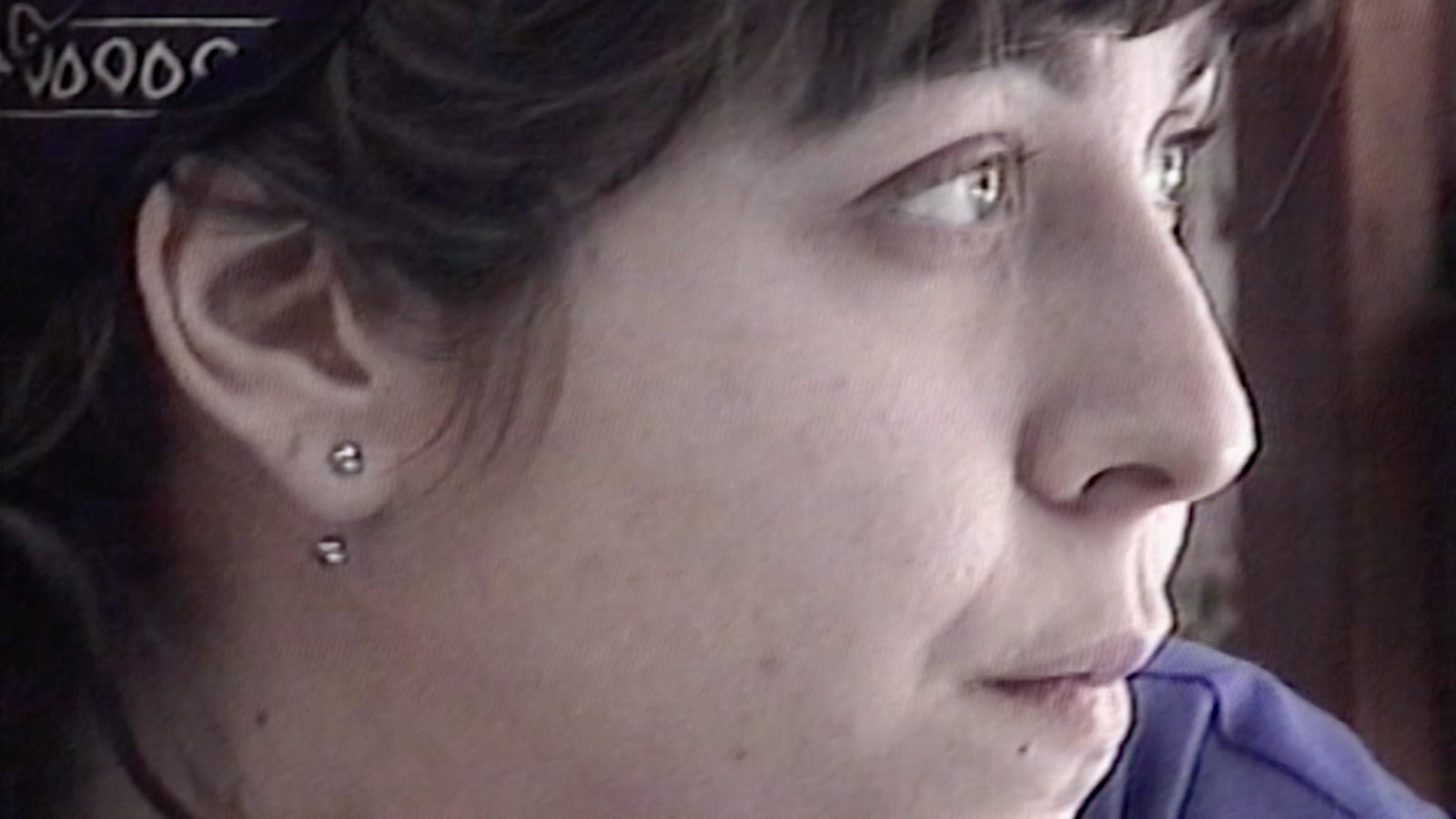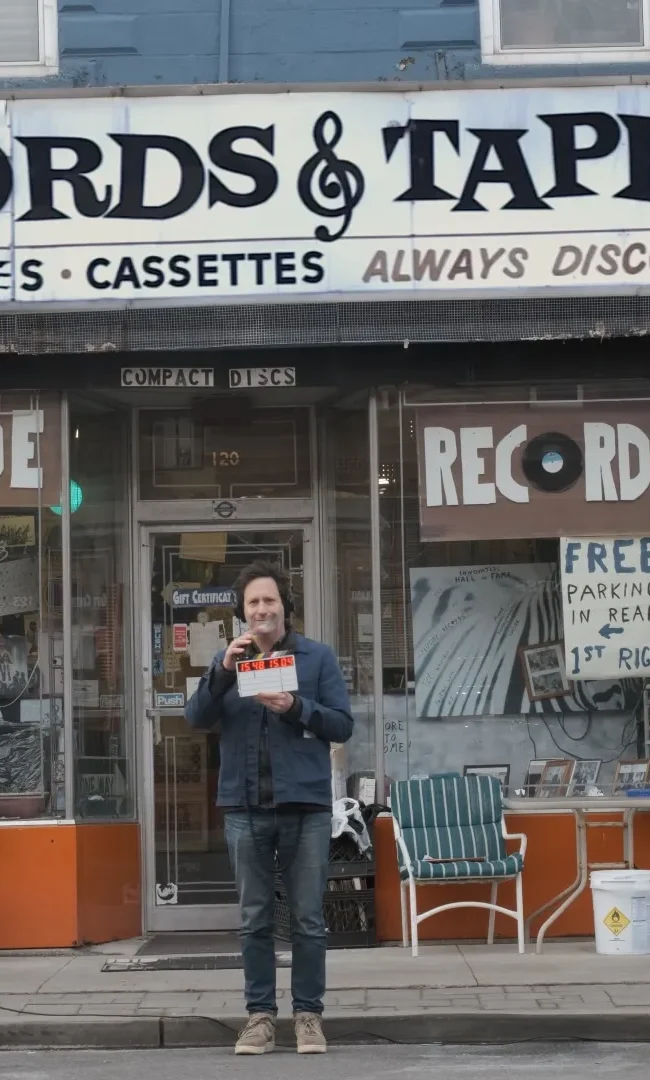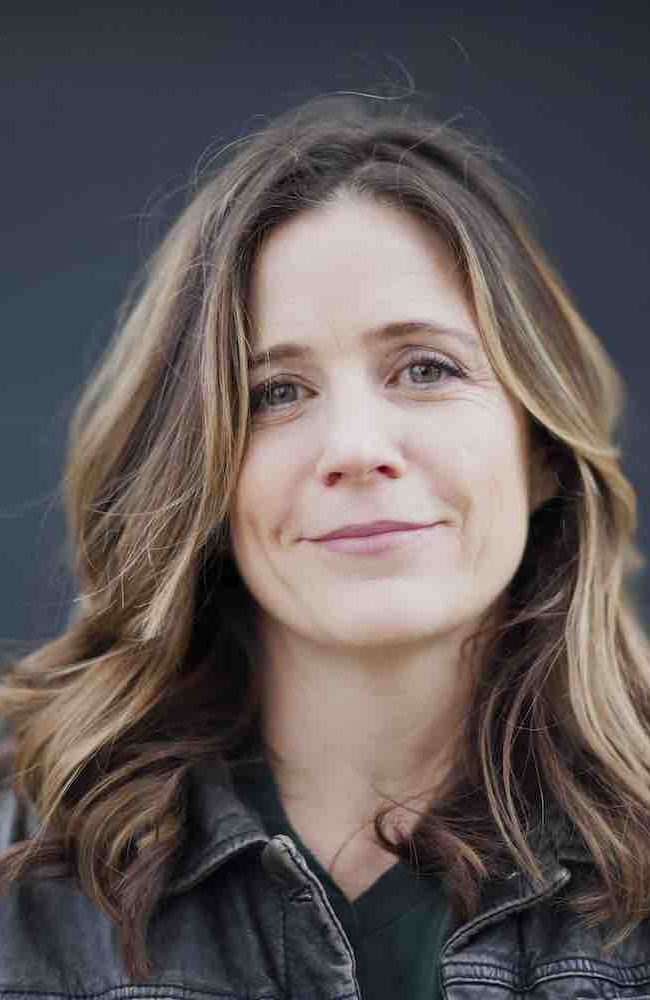THE YEAR OF THE DISCOVERY (EL AÑO DEL DESCUBRIMIENTO)

(Director Luis López Carrasco’s powerful documentary The Year of the Discovery is still making the rounds at virtual film fests. Like what you see here on Hammer to Nail? Why not give just $1.00 per month via Patreon to help keep us going?)
The Spanish documentary The Year of the Discovery begins appropriately enough with a man recounting a dream in which he and his friends end up in the afterlife trapped in a holding pen. Director Luis López Carrasco (El Futuro) masterfully employs this dream as a metaphor for the themes to come in his documentary — the entrapment of the working masses by economic cycles that are beyond their control; the surreal warping of past, present, and future by these cycles; and the tension between hallucinatory image and reality. López Carrasco employs a split-screen technique that allows us to simultaneously observe both speaker and listener in their after hours conversations. López Carrasco achieves a superb sensual intimacy. We are placed inside a Spanish bar — we can taste the bitterness of the beer, the stale smell of cigarettes burns our noses. We eavesdrop on cathartic venting sessions we all engage in when discussing work, politics, and the anxiety we feel for the future wellness of our loved ones. It is precisely these types of bars that serve not as opiates for the masses, but as classrooms for class consciousness.
The year referred to in the title is 1992. It is the 500th anniversary of Columbus’s “discovery” of America, Barcelona is hosting the Olympics, Spain is declaring itself a shiny beacon of European modernity after years under the Franco dictatorship, and the city of Cartagena is on edge with 15,000 jobs in peril due to “economic restructuring.” The series of shocks imposed by Neo-liberal economic policies on the citizens of Cartagena is expressed by the bar’s patrons. The youth are self-aware that they are a blank generation. The faces of factory workers express both anxiety over the precariousness of their jobs and exhaustion over grueling shifts that last seven consecutive days without a day off — they call it the “American Shift.” Cooks complain about unpaid salaries. Teachers complain about overcrowded classrooms with unruly students that bring drug baggies to school. Professionals complain about polluted rivers and neighborhoods besieged by drug dealing and prostitution. Older folks yearn for the days when trade unions were stronger and some even miss the bad old days of the Franco dictatorship. Those who have lost their jobs speak of the vortex of depression they find themselves in and despair over their loss of identity. Some others barely stay afloat by working several low-wage jobs. In short, we see a spectrum of individuals ground down by powerful abstract forces
López Carrasco occasionally uses one of the split screens to play television commercials from the early 90s. The dichotomy between commercials proclaiming the arrival of a modern Spain with the dialogue of disaffected Cartagenians is striking — the Barcelona Olympic Games are the fantasy broadcast to the outside world, Cartagena’s closing factories are the reality. The blurry-edged videos, the 90s clothing, and the overwhelming amount of public smoking really places the viewer in the era.
The Year of the Discovery makes a bold statement about time and the brutal economic cycles that eternally recur in crushing those hustling out a living (I am being deliberately vague on this point so as to not spoil the documentary. Interviews of López Carrasco can be found online. I suggest watching them after viewing the documentary). In short, 1992 and the present are connected by a series of angry combustions emanating from workers reacting against economic mechanisms and the politicians that grease those mechanisms. There are rhymes that echo throughout history — the Reichstag fire, the 1992 storming and burning of the Autonomous Parliament in Cartagena, the 2021 storming of the US Capitol building.
The Year of the Discovery is cinema at its best. It is early in the year, but I do not see any documentary in 2021 surpassing The Year of the Discovery aesthetically or in terms of thematic exploration. López Carrasco knows what he is doing. He has gifted us a work that connects past, present, and future. This is social commentary that does not exclude complexity. If you want to understand why many in Spain are indignant — or the frustration felt in many parts of Europe and the US — López Carrasco has provided this magnificent mosaic of his Cartagena. The Year of the Discovery is a warning to every society that fetishizes free markets — after the youth lose hope and the old feel their dignity repeatedly trampled upon comes the anger.
– Ray Lobo (@RayLobo13)











